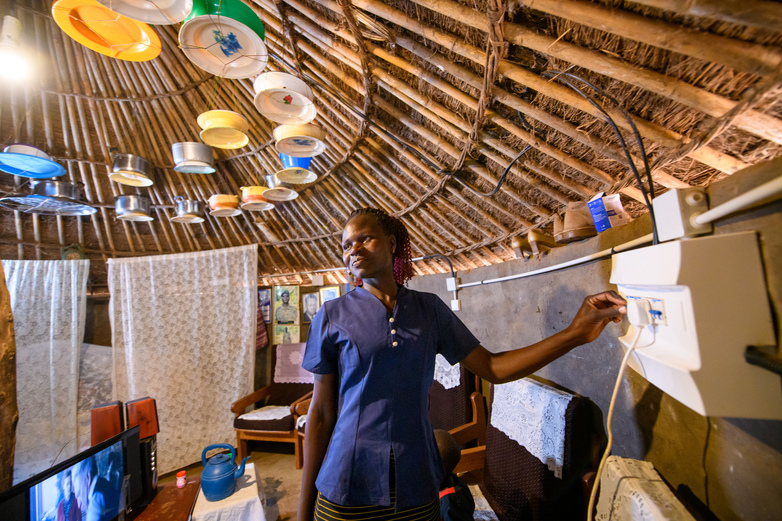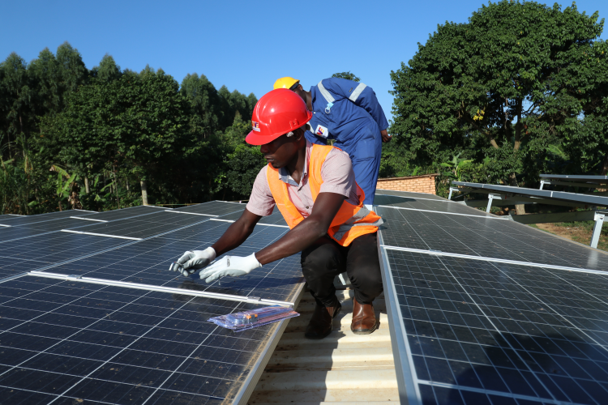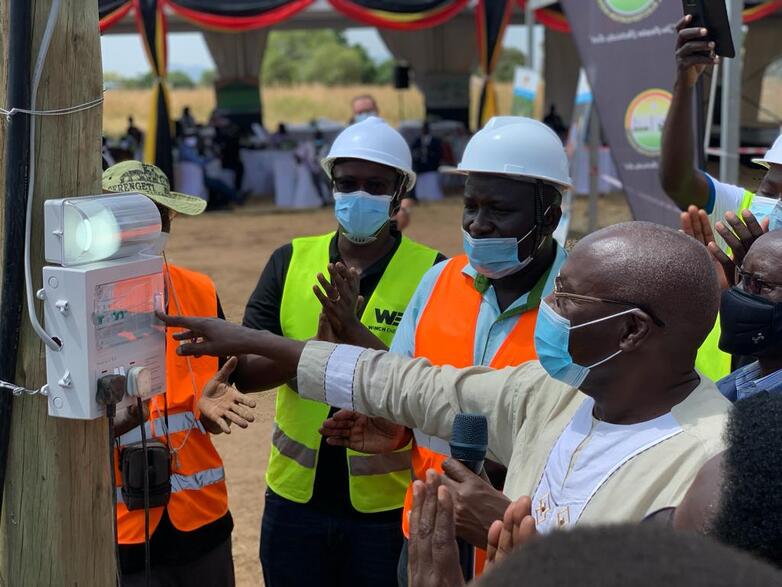Promoting mini grids for rural electrification in Uganda (Pro Mini Grids)
Promotion of Mini Grids for Rural Electrification in Uganda (Pro Mini Grids)
-
Commissioning Party
German Federal Ministry for Economic Cooperation and Development (BMZ)
-
Cofinancier
The European Union (EU)
-
Country
-
Lead executing agency
More
-
Overall term
2016 to 2023
-
Other Stakeholders
Winch Energy
-
Products and expertise
Sustainable infrastructure: water, energy, transport

Context
Uganda has great potential for generating power from renewable sources such as solar, hydro, biomass, and wind. However, only about five per cent of the population has access to any kind of electricity, with around 24 per cent of them accessing electricity for more than four hours per day. Outside the cities, where 70 per cent of the population lives, the rate of electrification is a mere 38 per cent. This presents a major barrier to economic development and poverty reduction.
The Government of Uganda seeks to promote private investment for mini grids in Uganda, as they offer a viable solution to insufficient access to electricity. Mini grids can supply reliable and grid-like electricity in most villages where grid extension is unaffordable. The policy and regulatory framework for mini grids however still needs to be developed to enable mini grid projects to reach the necessary scale.

Objective
Mini grids are providing viable and affordable rural electrification in Uganda.
Approach
The project runs the following activities, among others:
- Steering policy by improving the capabilities of public actors to plan and regulate mini grid electrification and to develop stable business models for this.
- Developing regulatory instruments and mechanisms that promote private sector engagement, provide investment security and foster scaling up the implementation of renewable energy mini grids.
- Advancing technology and design to build private sector capabilities to plan, install and operate mini-grids by providing Technical and Vocational Education and Training (TVET) for solar and mini grid technicians.
- Ensuring productive use through training and access to finance for Small and Medium-sized Enterprises (SMEs), smallholder farmers and households ensuring electricity is used to drive economic development.
Last update: July 2023








